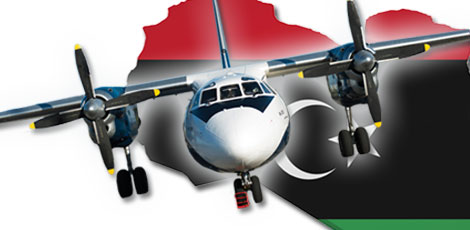Chapman Freeborn’s Air Libya cargo deal
13 / 09 / 2013

LIBYA is to have an air cargo industry again after the fall of Colonel Gaddafi, Air Cargo News exclusively reveals.
Chapman Freeborn Airchartering has struck a game-changing deal with carrier Air Libya to launch reliable, interconnected air cargo services into and within the war-ravaged country.
The mutually beneficial strategic partnership allows the global aircraft charter specialist to capitalise on the nation’s strong oil and gas production output – whilst the passenger airline makes its first significant foray into the airfreight business.
It is the intention to introduce internal scheduled services to connect Tripoli and Benghazi with Libya’s more remote airfields – including regular operations to the southern oil fields, explains a statement.
“We needed a local partner to get things done and Air Libya is very well established and already heavily involved in the oil and gas community in the country,” advises Paul Drew, Chapman Freeborn’s project manager.
“Air Libya is also very interested in starting a cargo venture. The airline plans to construct a purpose-built cargo facility in partnership with Buraq Air in Benghazi. They are hoping to break ground on this facility in the middle of next year,” he reveals.
Under the alliance, Chapman Freeborn will manage a Russian-built Antonov 26 freighter (above), based at Mitiga – the main cargo airport in Tripoli – on a long-term lease agreement. The An-26, which offers a 5.5-tonnes payload, will be available for ad hoc cargo charters within Libya as well as international flights to and from the EU and North Africa.
Getting the aircraft into Libya proved challenging because of political sensitivities, admits Drew. “We discovered there are some [bureaucratic] differences between the Civil Aviation Authority (CAA) in Benghazi and the one in Tripoli. The main difficulty was getting clearance for Libya’s CAA officials to personally inspect the aircraft at its Ukraine base. So, there was a three-month delay.”
The tie-up is expected to increase Libya’s cargo traffic flows appreciably, as forwarders will no longer be limited to ocean and truck options, which suffer from the ongoing security situation.














